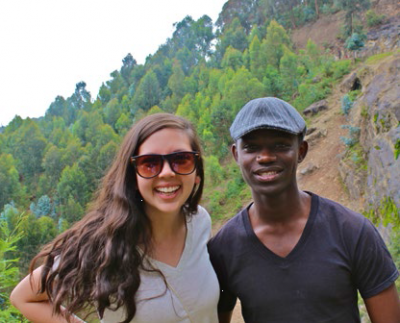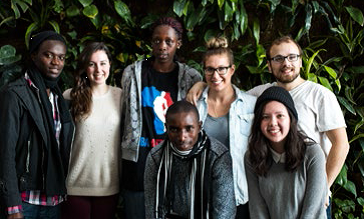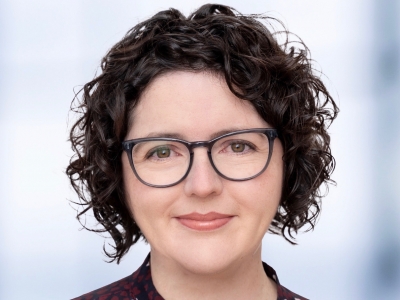Emily Chan, 4th year, Double Major in Journalism and Human Rights
Emily Chan travelled to Rwanda last summer to take part in a course entitled, “Rwanda: The Media in a Post-Atrocity Setting”. After three weeks in the African country, she came away with meaningful friendships and plans for a new academic path.
You flew to Rwanda with 15 FPA students and journalism professor Allan Thompson, who had covered the Rwandan genocide for the Toronto Star. What was your assignment?
We were given access to archives at the Gisozi Genocide Memorial and we studied how the media and propaganda contributed to the mindset leading up to and during the Rwandan genocide, as well as the current media climate. The media was used as a tool during the genocide, particularly popular radio stations.
What did you learn?
More than anything, I learned that Rwanda is a very complicated country. The evidence and memory of the genocide co-exists with modern life. Kigali, the capital, has a very developed downtown core: it’s clean; there’s Wi-Fi; everybody has a cellphone. But we also visited the sites of massacres, which were hard to reconcile with the daily life going on in the surrounding communities. It was just so hard to comprehend how it could have happened.
You visited the Murambi Technical School, where tens of thousands of people were killed in 1994. It’s now a genocide memorial centre.
That was a really difficult experience. They excavated the mass graves after the genocide, and preserved some of the bodies in lime and laid them out in the classrooms as irrefutable proof of what had happened there. We were there with three local journalism students who had all been personally affected by the country’s history, so it was especially emotional to see how deeply they were affected at Murambi. But there was something very hopeful in the way they comforted each other and took care of each other at the memorials. It seemed like a good symbol that maybe this generation could move forward from the country’s past.

Chan poses with Alain Mbarushimana, a student from the National University of Rwanda, on their way to Kibuye.
You spent three weeks studying and travelling with these students. What did you learn from them?
Denise, Alain, and Noel are journalism students at the National University of Rwanda and they were a huge part of our learning experience. We became close friends. We had long car rides together and we would ask them about what we were seeing out the window and then we struggled to explain what life is like in Canada. Finally, we decided to invite them back here so we could share our lives with them.
What was their reaction to that invitation?
They were surprised. None of them had been on a plane before and only one had been outside of Rwanda. It was difficult to secure visas for them, but the Faculty of Public Affairs and the Faculty of Arts and Social Sciences agreed to sponsor a conference about our experience as part of FPA Research Month. Once we formally invited them, they were granted visas.
Ottawa in February could be a bit of a shock.
Obviously they’ve never experienced cold like this, but they’ll be staying with us and we’ll lend them jackets, scarves, etc. We want to show them Parliament, the Byward Market, and the Rideau Canal, depending on how long they can endure being outside. I think we are as excited as they are.

First row: Noel Manishimwe and Emily Chan.<br />Second row: Alain Mbarushimana, Kirsten Fenn, Denise Nwase Muvunyi, Megan Lalonde, Noah Lefevre.
One of our primary objectives at FPA is to broaden the international experiences offered to undergraduates through programs like the Bachelor’s for Global and International Studies, Alternative Spring Break, and courses like this one. How did you find this experience valuable?
It’s the type of learning experience you never get in the classroom. We were learning from government experts, Rwandan professors, and local journalists. It’s an experience that will always stay with me.
In fact, it’s shaped your future plans.
I was so interested in the course material that I wanted to continue studying it. I’ve applied to a few master’s programs to study the genocide and media. I think it will be a natural progression once I finish my degree in journalism and human rights.
Friday, September 9, 2016 in FPA Voices, International, Journalism, Media, People, Professional
Share: Twitter, Facebook



